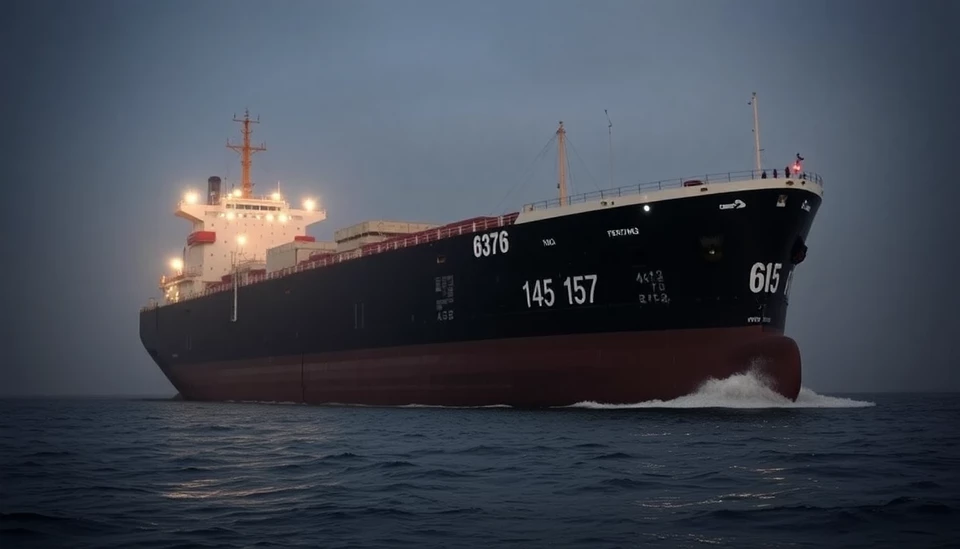
In an unprecedented development in the maritime industry, the first supertanker destined for scrapping in two years is making headlines. The vessel, known for its striking history, is being hailed as a “dark ship” due to its opaque ownership and dubious operational practices. This situation is raising significant concerns about regulatory practices and the environmental implications that come with the dismantling of such enormous ships.
Currently anchored off the coast of Alang, India, this supertanker symbolizes the end of an era for large oil transporters, as it becomes part of a growing trend in which aging, underperforming vessels are sent to the breakers. With the tanker industry grappling with an overabundance of ships in the face of declining demand, more vessels are expected to join it in being dismantled. This specific tanker had been operating for over 15 years before the decision was made to decommission it.
The term “dark ship” refers to vessels that operate without clear transparency in ownership or accountability, often falling under the radar of international regulations. This tanker has been linked to various allegations suggesting neglect of safety practices and environmental standards. Advocates for a cleaner marine environment are raising alarms about potential hazards associated with scrapping such ships, especially in regions already plagued by pollution and unsafe labor conditions.
Environmental experts warn that the scrapping process can release harmful substances, including heavy metals and hydrocarbons, into surrounding ecosystems. The combination of poor regulation and the rushed dismantling process often leads to catastrophic events affecting both marine life and human populations living nearby. As shipbreaking ramps up, industry stakeholders are calling for stricter regulations and oversight to mitigate these environmental risks.
In the meantime, the sale and dismantling of this supertanker are anticipated to spark further examination of the maritime sector's practices. While booms in the scrapping of large vessels may momentarily alleviate overcapacity issues, the long-term implications on environmental health and regulatory demands are sure to remain central themes in upcoming discussions among maritime professionals and environmental activists alike.
As 2024 approaches, the future of large oil tankers hangs in the balance, with more entities likely to follow suit, compounding the issue of dark ship operations in a time when greater transparency is needed. The maritime community awaits how industry regulations might evolve in response to these challenges.
With eyes on this significant event, stakeholders from various sectors are considering the implications of this dismantling on both the economy and the environment. The hope remains that proper oversight can turn a dark chapter in maritime history into an opportunity for progress and responsible shipping practices.
<#>MaritimeIndustry #Supertanker #ShipScrapping #EnvironmentalRegulations #DarkShip #SustainableShipping
Author: Rachel Greene




